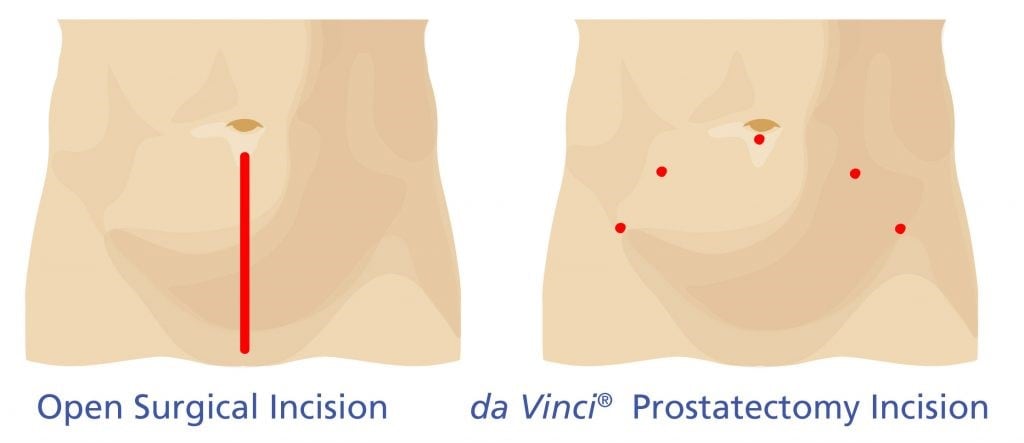Prostate and Kidney Cancer Center
 The Midwest Institute for Robotic Surgery at Silver Cross Hospital is a leader in robotic prostatectomy and nephrectomy procedures having performed over 165 procedures since 2012.
The Midwest Institute for Robotic Surgery at Silver Cross Hospital is a leader in robotic prostatectomy and nephrectomy procedures having performed over 165 procedures since 2012.
Prostate Cancer
Prostate cancer is the second most common cancer in men in the United States. Fortunately, with early detection and proper treatment, the 5-year survival rate is almost 100%. Your doctor will discuss all treatment and surgery options with you.
According to the American Urological Association’s Guidelines for the Clinical Management of Prostate Cancer, “The major potential benefit of prostatectomy (surgery to remove the prostate) is a cancer cure in patients in whom the prostate cancer is truly localized.”
A prostatectomy can be performed with open surgery or minimally invasive surgery (robotic-assisted or laparoscopic).
Using a da Vinci® robot, the surgeon makes a few small incisions in the abdomen using long, thin instruments and a tiny camera. The camera sends images to a video monitor in the operating room to guide your surgeon during the operation. The robot is designed to provide surgeons with enhanced capabilities, including high definition 3D vision and a magnified view. Your doctor controls the robot, which translates his or her hand movements into smaller, precise movements of tiny instruments inside your body. The robot cannot act on its own. Surgery is performed entirely by the surgeon.
 Big Benefits
Big Benefits
Compared with traditional open surgery, robotic surgery requires significantly smaller incisions. The potential benefits for prostate cancer patients include:
- Lower positive surgical margin rates
- Faster return of erectile (sexual) function
- Better chance for return of urinary continence within 6 months
- Less blood loss or need for a transfusion
- Fewer complications
- Lower risk of wound infection
- Shorter hospital stay
- Less chance of hospital readmission
- Fewer days with catheter
- Less risk of deep vein thrombosis
- Better nerve sparing rate
- Faster recovery
- Minimal scarring
Talk to your doctor to decide if robotic surgery is right for you. As with any surgery, there are risks.
Kidney Cancer
If your doctor believes you have a cancerous kidney tumor, he/she may suggest surgery. Surgery to remove your kidney is known as a nephrectomy. When surgeons remove only the tumor and leave the healthy portion of your kidney, it’s called a partial nephrectomy. Surgery can be performed with traditional open surgery, minimally invasive surgery (laparoscopy), or robotic surgery.
 Compared with traditional open surgery, robotic surgery requires significantly smaller incisions. The potential benefits for kidney cancer patients include:
Compared with traditional open surgery, robotic surgery requires significantly smaller incisions. The potential benefits for kidney cancer patients include:
- Shorter hospital stay
- Less pain
- Less blood loss
- Fewer complications
- Less scarring
- Shorter warm ischemic time (shorter is better to kidney function)
- Lower positive margin rates (lower rate means less chance of cancer cells being left behind)
- Better renal (kidney) function rate
- Faster recovery
To be affiliated with the Midwest Institute of Robotic Surgery at Silver Cross Hospital, surgeons must meet rigorous criteria and demonstrate excellent outcomes and high patient satisfaction.